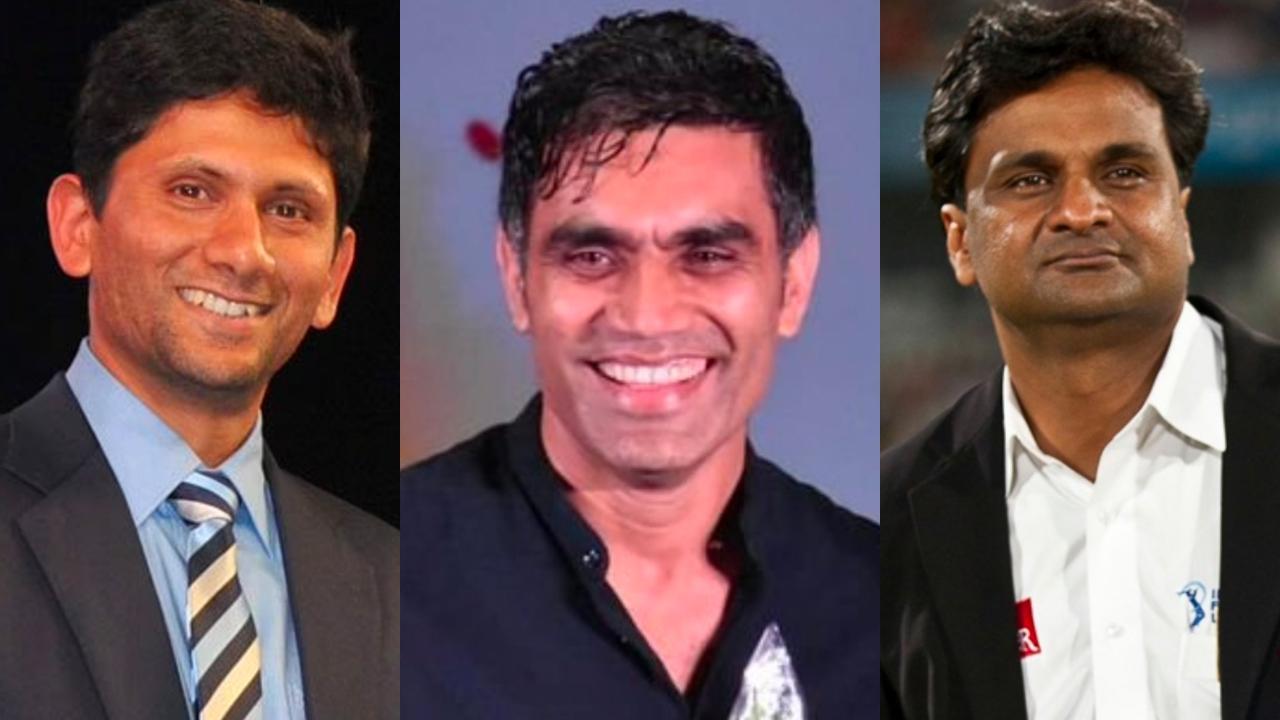Former India pacers Javagal Srinath, Venkatesh Prasad and Munaf Patel, who began playing competitive cricket after the age of 20, believe a player’s true potential is only realised with physical and mental maturity that come with age

Venkatesh Prasad, Munaf Patel and Javagal Srinath
While age-group cricket has often been considered a stepping stone for success in the international arena, former India pacers Javagal Srinath, Venkatesh Prasad and Munaf Patel offer a counter view on the subject.
In a recent Red Bull Cricket Room podcast, the three former speedsters cite their own example to explain how maturity brings in a genuine realisation of one’s full potential.
“While it’s important to give kids a platform at a young age to showcase their talent, I took my first step in competitive cricket at the University level. I never played U-13, U-15, U-17 or even U- 19 cricket. Today, we have a lot of India cricketers, who have emerged from the U-19 team, but my first big step was different and I think I did quite well,” said Prasad, 52, who played 33 Tests and 161 ODIs between 1996 and 2001, claiming 96 and 196 wickets respectively.
Srinath, currently an ICC match referee, couldn’t agree more with his former Karnataka and India bowling partner. “Even I did not play any representative age-group cricket when I was young. I feel age-group cricket is good, but it also brings with it some heavy baggage. If a kid doesn’t get picked the next year or in the next age-group, then he/she could start losing confidence. I believe as the physical body and the mental maturity of a player is continuously growing, the player must wait for the right time for his/her best to emerge,” explained Srinath, 52, who played 67 Tests and 229 ODIs, claiming a whopping 236 and 315 wickets respectively between 1991 and 2003.
“It’s important to have a lasting interest and passion for the game because your talent will only emerge at the right time. My first age-group representative cricket was U-22 and U-23 and then I played Ranji Trophy. So, it doesn’t really take long because once you are at a certain age, 21 or 22, you are in a better place to manage disappointments. You won’t get disheartened or dejected if you don’t perform well because you know how to come back in the next game. So, my message to aspiring cricketers is to wait for your time to come,” added Srinath.
Patel meanwhile, said that it’s important for a youth player coming from a small town or village to move to a bigger centre to realise his/her potential. “Like Venky and Srinath, I too did not play any junior cricket. I straightway began with U-23 and in the same year I also played Ranji Trophy and immediately got picked for India ‘A’. Coming from a small village [Ikhar in Gujarat], I realised what I could achieve only when I came to Baroda. Till then, I didn’t even know what Ranji Trophy was. So, I also believe that a certain maturity in age is required for any player to realise his/her potential. At this age, you know exactly how you are performing and can then adjust things accordingly and cover up for your shortcomings in the next match or opportunity that comes your way. At 17-18, no player will know how good he or she is,” said Patel, 38, who played 13 Tests and 70 ODIs, claiming 35 and 86 wickets respectively between 2006 and 2011.
Also Read: Self-belief is key to winning again: Lalchand Rajput
 Subscribe today by clicking the link and stay updated with the latest news!" Click here!
Subscribe today by clicking the link and stay updated with the latest news!" Click here!










